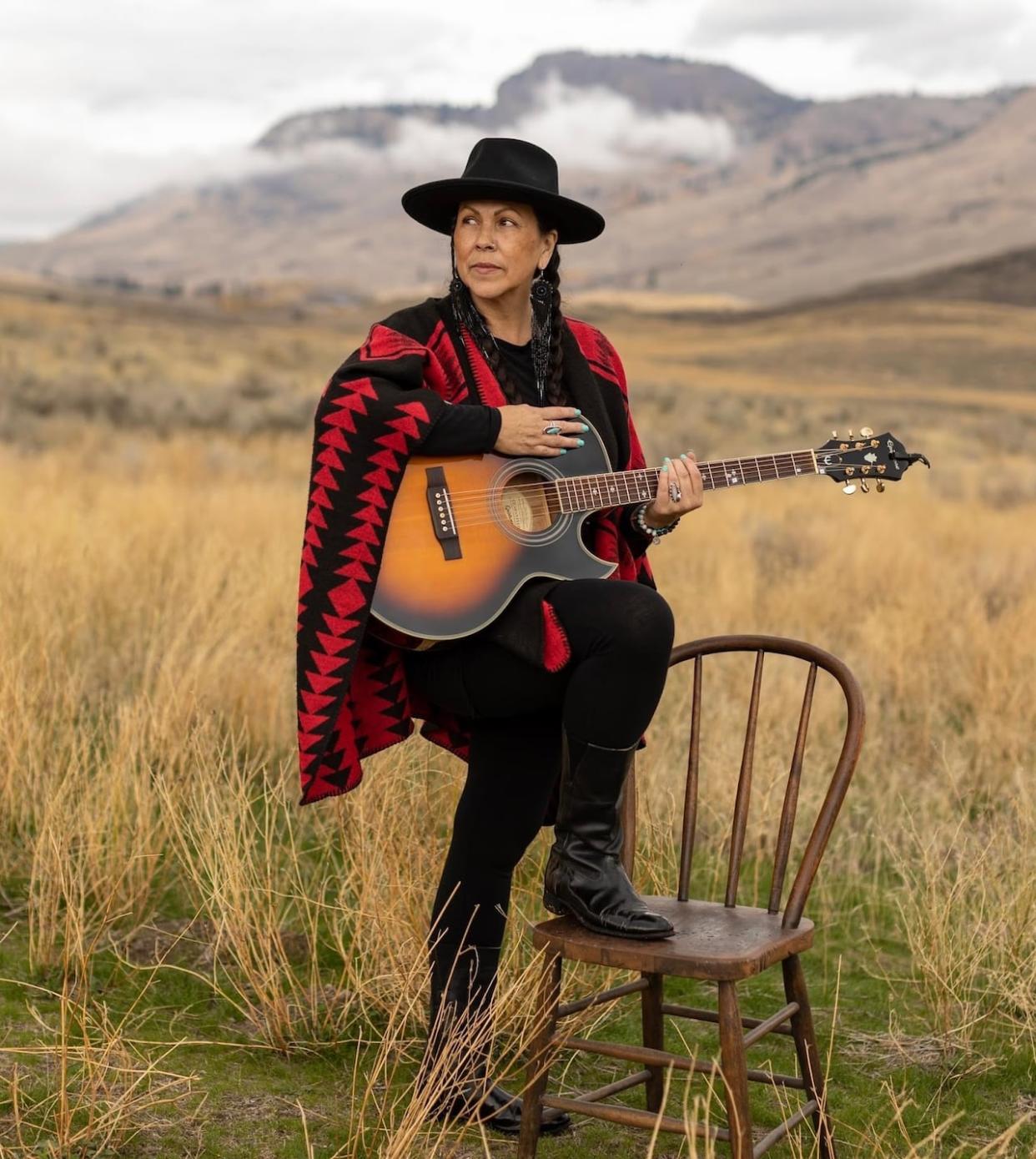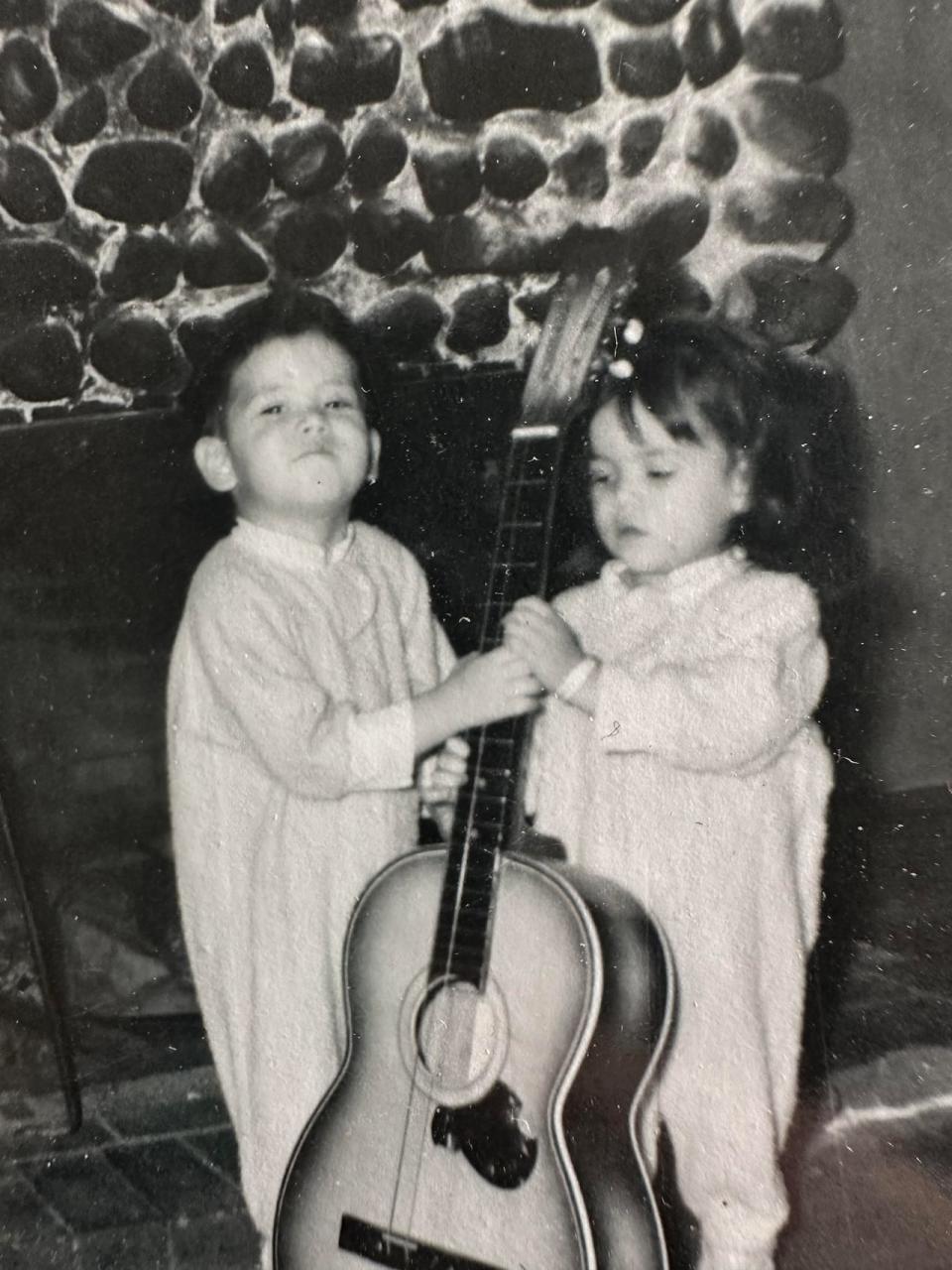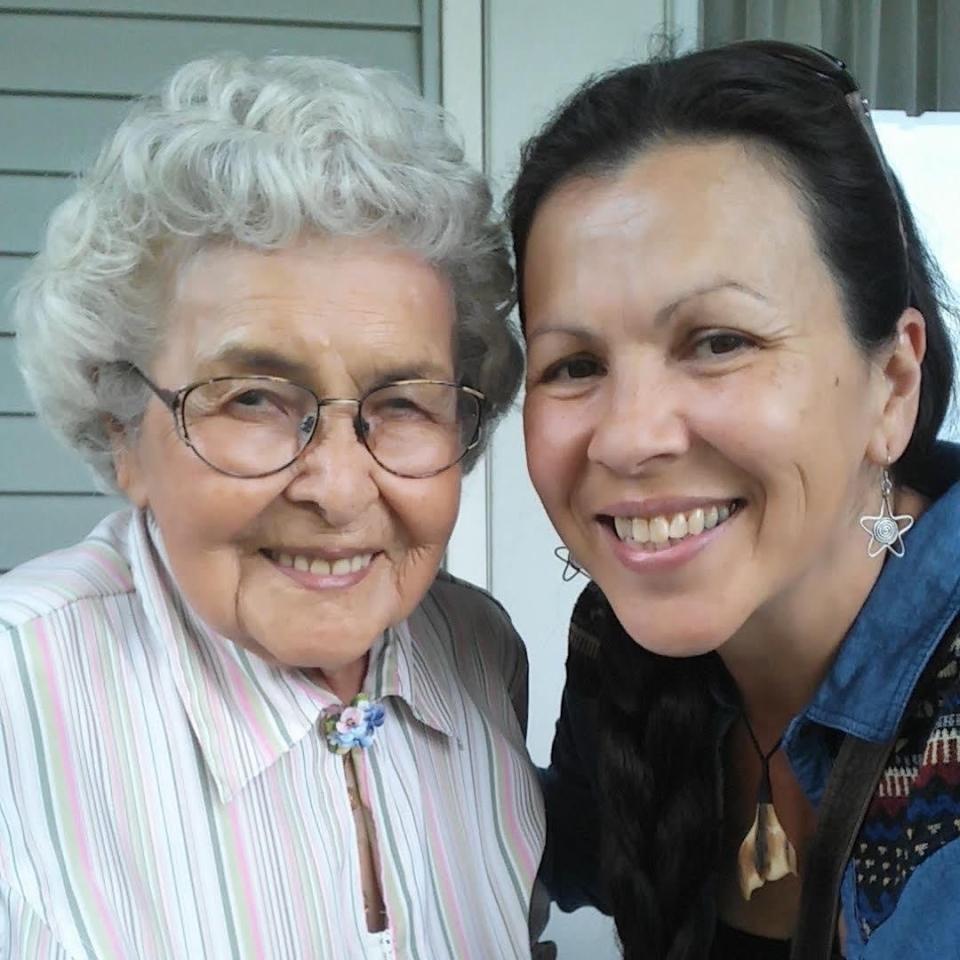Lheidli T'enneh musician records children's songs in her ancestral languages

Lheidli T'enneh musician Kym Gouchie is keeping First Nations languages alive for the next generation. And she's doing it by recording children's songs with the help of her drum, a new ukulele, phone voice memo recordings of her Granny's voice and an armful of firewood.
Gouchie's children's album, Shun beh nats'ujeh, released on June 13, means, "We are Healing through Songs."
The album features songs Gouchie wrote and performed in English as well as her ancestral languages of Dakelh, Secwepemctsin and Cree.
"These languages are part of my DNA and my blood memory. When we hear the language being spoken, it stirs something up in us," Gouchie says.

Kym Gouchie as a young girl with with her brother, Buddy Gouchie. (Submitted by Kym Gouchie)
I'll never be a fluent speaker," Gouchie said. "But what I can do is take words and phrases and include them in my songs."
One album track, Atsoo Shun [Grandmother Song], samples a voice memo that Kym recorded with her grandmother, Mary Gouchie, speaking in Dakelh on her iPhone.
Dakelh, also known as Carrier, is the language traditionally spoken by First Nations people living in northcentral B.C. It has many dialects, including the Lheidli dialect spoken in the Prince George area.
Mary Gouchie was a language keeper, one of the last fluent speakers of the Lheidli dialect of Dakelh, says Kym.
She remembers Mary Gouchie as a beautifully dressed woman who was generous with her time, teaching and sharing her language skills and working with a linguist to build a dictionary.

Kym Gouchie with her grandmother, Mary Gouchie, who was a language keeper and one of the last fluent speakers of the Dakelh Lheidli dialect. (Submitted by Kym Gouchie)
Mary stayed sharp in mind and body into her 90s, said Kym, even lifting weights in front of the TV while watching Jeopardy.
"She didn't want to go. She had so much work left to do in sharing the language."
Now Kym, an elder in training and accomplished musician who frequently performs her music in elementary schools, has taken up that work from her rural home on Lheidli territory near Prince George, B.C.
That's where she honed the album's high-energy Dakelh Counting Song.
Gouchie practiced her Dakelh numbers while stacking firewood outside her house, repeating the numbers as she picked up each piece of wood until the words "became part of my muscle memory."
Another song on the album is a haunting lullaby about missing children and potential unmarked graves at Canadian residential schools.
The song, in English and Dakelh, includes the lyrics, "No more my body lies deep in the ground. Hallelujah, I've been found."
"If you think about children's music, about nursery rhymes, like Rock-a-bye, Baby or Ring Around the Rosie, these songs have a very dark kind of underlying message, but yet they're like a lullaby. They're beautiful."
Gouchie thinks it's important to educate kids about "the dark history of this country. And what better way to do that than in a song? Children can have conversations with their parents about what they've heard."
Gouchie, a grandmother and Lheidli elder-in-training, hopes her songs will resonate with adults, too.
"These are also for residential school survivors or anybody who has suffered childhood trauma. You lose the innocence of growing up with that wonder and imagination and love and beauty that a child deserves to grow up into. This is for the child in all of us."

 Yahoo News
Yahoo News 
